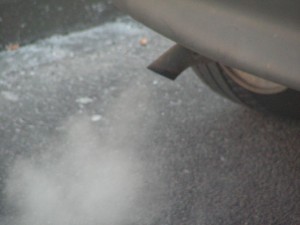 I suppose that it is just possible that a UK run by Nigel Farage or Gideon Osborne might care more about its citizens and set even lower targets for nitrogen dioxide than those set by the straight-banana people in Brussels – it’s possible but very unlikely.
I suppose that it is just possible that a UK run by Nigel Farage or Gideon Osborne might care more about its citizens and set even lower targets for nitrogen dioxide than those set by the straight-banana people in Brussels – it’s possible but very unlikely.
A UK spokesman said ‘Killing our citizens has been a traditional policy for UK governments ever since there was a UK and we aren’t going to put up with a bunch of overpaid eurocrats with their environmental red-tape, trying to put an end to it. Spring is a particularly good time for breaking the Directives to which we signed up, knowingly and willingly. How many old people can be killed by air pollution is a real sign of a man’s masculinity.’. A spokesman from BirdLife Malta said ‘I don’t know why they joined the EU if they aren’t going to stick to the rules. We are organising a tourist boycott of the UK.’.
But seriously, well done to Client Earth for their long legal battle.
I drive a diesel, quite an old diesel, which I bought in good faith because I thought its lower carbon footprint was a green choice! Not the first, and probably not the last, time when best intentions lead to worst outcomes.
[registration_form]
Yes, we were all duped by the diesel ruse. But thankfully we have options in the electric car market appearing that combined with a renewable energy supply finally make environmental sense. Maybe time to trade up?
Sophie – welcome and thank you.
Don’t particularly want to go all ‘Jeremy Clarkson’ but there is the environmental cost of the batteries…
Take your bike for short journeys. I won’t define ‘short’ because one persons short 10 miles is another’s exhausting 10 mile day trip.
But ditch the car whenever you can.
I know its a well used slogan, but that doesn’t mean its not a good one –
“Bikes run on fat and save you money, cars run on money and make you fat”
I don’t think there were any ruses played or duping involved. It is not a straightforward comparison and whether diesel is considered a better or worse fuel for cars depends on what weightings you apply to different environmental pollutants; some years ago the advantage was felt to lie clearly with diesel, more recently the pendulum has swung back the other way. Diesel is better in some respects and worse in others.
Advances in motor technology have improved the fuel efficiency of petrol engines and also improved the particulate and NOx emissions of diesel engines but, of course, not everyone drives a new or a well maintained vehicle! Electric vehicles may be part of the answer – and certainly provide an interesting alternative for urban driving – but even they have environmental issues. The manufacture of the batteries is very energy intensive and there are potential pollution aspects associated with the manufacture supply chain. Also, whilst there are no tail-pipe emissions from the vehicle itself, the electricity consumed has to be generated somewhere, and so it is appropriate to attribute the emissions associated with the overall generating mix for the country to each watt consumed (assuming you are just plugging in to the mains). See for example http://onlinelibrary.wiley.com/doi/10.1111/j.1530-9290.2012.00532.x/full
I think the depressing truth is that there is no type of car that we can hop into for a completely guilt-free drive. Few of us can avoid driving altogether so if we are concerned by our environmental impact the best thing we can do is to reduce the amount of driving if we can, drive in an environmentally conscious way (avoid speeding and hard acceleration for example) and keep the car as well maintained as possible.
Well said JW. Reduction of pointless travel is a good start
The issue is, I believe, city vs longer journey. Diesel is a good carbon cost cutter for long journeys but in a city environment with many cars sitting idling they cause too much pollution. So the cost cutting of having a diesel has to outweight the potential increased tarrifs we should have against owing diesel cars – again as in Scandanavia where diesel car tax is several times more than petrol
Wasn’t there a case of a primary school near the North Circular in London where pollution got so bad children weren’t allowed to play outside because it wasn’t safe? It was near a major intersection so the pollution was from queuing traffic with engines all idling.
Planners could take better account when looking at new infrastructure and roads near schools, hospitals, residential homes etc.? Councils & Highways can also look to re-route (roads or even connsider moving the school &c.)?
But then again, that would need a holistic approach to planning ….
It would be like politicians thinking about environmental impacts of their actions?
“How many old people can be killed by air pollution”
About the same as by hypothermia.
Mark,
I also drive a fairly old diesel and these days do fewer long journeys. My choice was also for the best reasons.